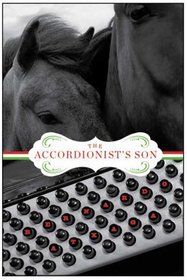Search -
The Accordionist's Son: A Novel (Lannan Translation)
The Accordionist's Son A Novel - Lannan Translation
Author:
A celebrated international author, listed among the “21 top writers for the 21st century” (The Observer, U.K.) As David Imaz, on the threshold of adulthood, divides his time between his uncle Juan’s ranch and his life in the village, where he reluctantly practices the accordion, a tradition that his authoritarian father insists he c... more »
Author:
A celebrated international author, listed among the “21 top writers for the 21st century” (The Observer, U.K.) As David Imaz, on the threshold of adulthood, divides his time between his uncle Juan’s ranch and his life in the village, where he reluctantly practices the accordion, a tradition that his authoritarian father insists he c... more »
The Market's bargain prices are even better for Paperbackswap club members!
Retail Price: Buy New (Hardcover): $17.39 (save 30%) or
Become a PBS member and pay $13.49+1 PBS book credit
![header=[] body=[Get a free book credit right now by joining the club and listing 5 books you have and are willing to share with other members!] Help icon](/images/question.gif?v=90afaeb39) (save 46%)
(save 46%)ISBN-13: 9781555975173
ISBN-10: 1555975178
Publication Date: 2/3/2009
Pages: 400
Rating: ?
ISBN-10: 1555975178
Publication Date: 2/3/2009
Pages: 400
Rating: ?
0 stars, based on 0 rating
Genres:
- Literature & Fiction >> General >> Contemporary
- Literature & Fiction >> General >> Literary
- Literature & Fiction >> Genre Fiction >> Political
- Literature & Fiction >> World Literature >> European >> Spanish & Portuguese




